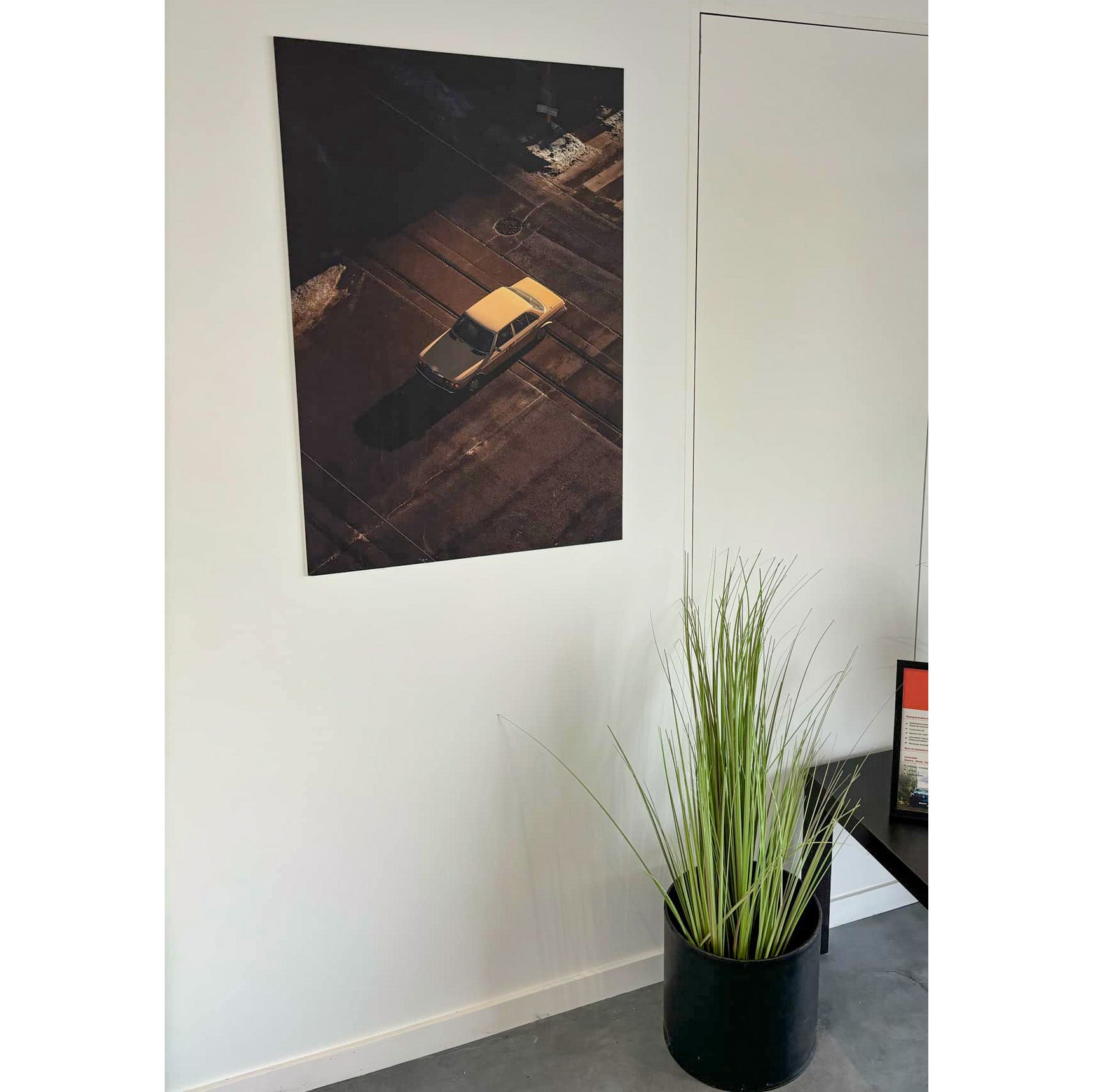Art print | Christian II and Dyveke - Vilhelm Rosenstand


View from behind

Frame (optional)
In the fascinating world of art, some works transcend time and space, captivating the mind and imagination of viewers. The art print "Christian II and Dyveke" by Vilhelm Rosenstand is one of those creations that, through its narrative depth and visual richness, invites a journey into Danish history. This piece, depicting an emotionally charged scene between King Christian II and his beloved Dyveke, evokes universal themes such as love, tragedy, and power. Through this representation, Rosenstand manages to capture not only the historical moment but also the intensity of human feelings, making this art print timeless.
Style and uniqueness of the piece
Rosenstand's style is characterized by meticulous attention to detail and a vibrant color palette that breathes life into his characters. In "Christian II and Dyveke," every element, from the richly adorned costume to the delicate expressions on the faces, demonstrates exceptional craftsmanship. The composition is skillfully orchestrated, highlighting the interaction between the protagonists while incorporating background elements that enhance the scene's atmosphere. Light plays a crucial role, creating shadows and reflections that add an almost tangible dimension to the work. This approach allows the viewer to feel the emotional tension emanating from the canvas, making the viewing experience deeply immersive. In short, the uniqueness of this art print lies in its ability to transcend a simple portrait to become a true visual narrative.
The artist and his influence
Vilhelm Rosenstand, an emblematic figure of 19th-century Danish art, left his mark on his era through his talent and vision. Trained at the Royal Danish Academy of Fine Arts in Copenhagen, he was influenced by the great masters of the past, while developing a personal style that is uniquely his own. His work is often tinged with nostalgia for bygone times, and "Christian II and Dyveke" perfectly illustrates this quest for historical authenticity. Rosenstand does not merely reproduce past events; he reinvents them with modern sensitivity, questioning the values and

Matte finish

View from behind

Frame (optional)
In the fascinating world of art, some works transcend time and space, captivating the mind and imagination of viewers. The art print "Christian II and Dyveke" by Vilhelm Rosenstand is one of those creations that, through its narrative depth and visual richness, invites a journey into Danish history. This piece, depicting an emotionally charged scene between King Christian II and his beloved Dyveke, evokes universal themes such as love, tragedy, and power. Through this representation, Rosenstand manages to capture not only the historical moment but also the intensity of human feelings, making this art print timeless.
Style and uniqueness of the piece
Rosenstand's style is characterized by meticulous attention to detail and a vibrant color palette that breathes life into his characters. In "Christian II and Dyveke," every element, from the richly adorned costume to the delicate expressions on the faces, demonstrates exceptional craftsmanship. The composition is skillfully orchestrated, highlighting the interaction between the protagonists while incorporating background elements that enhance the scene's atmosphere. Light plays a crucial role, creating shadows and reflections that add an almost tangible dimension to the work. This approach allows the viewer to feel the emotional tension emanating from the canvas, making the viewing experience deeply immersive. In short, the uniqueness of this art print lies in its ability to transcend a simple portrait to become a true visual narrative.
The artist and his influence
Vilhelm Rosenstand, an emblematic figure of 19th-century Danish art, left his mark on his era through his talent and vision. Trained at the Royal Danish Academy of Fine Arts in Copenhagen, he was influenced by the great masters of the past, while developing a personal style that is uniquely his own. His work is often tinged with nostalgia for bygone times, and "Christian II and Dyveke" perfectly illustrates this quest for historical authenticity. Rosenstand does not merely reproduce past events; he reinvents them with modern sensitivity, questioning the values and









